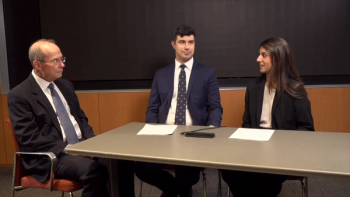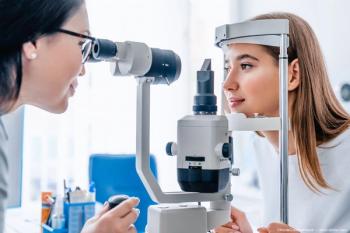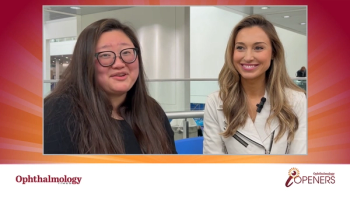
Expanding accessibility of vision correction with spectacles for children with cranial abnormalities
Novel glasses, designed for children with cranial dysotosis, help doctors provide functional eyewear for children in underserved communities, says Donny Suh, MD.
Video transcript
Note: This transcript has been lightly edited for clarity.
Donny Suh, MD: Hi, my name is Donny Suh. I'm a pediatric ophthalmologist and strabismologist. I'm a professor and chief of our section at the University of California Irvine at Gavin Herbert Eye Institute.
Here at the Academy, I will be discussing special glasses that we invented. It's called the Omni glasses. And it is designed for kids, for children, with any forms of cranial dysotosis.
So in other words, any type of cranial facial abnormalities like microcephaly or macrocephaly, or plagiocephaly, where patients have difficulty of fitting the glasses: These glasses are completely adjustable to each individual. So that they can wear these glasses without having to worry about tilted glasses and not being able to see.
So these glasses are adjustable at the nose at the nasal bridge. So it has an expendable part where these parts can expand from zero millimeters all the way to 30 millimeters. So patients with the telecanthus or hypertelorism, with the eyeballs pointing outward, that can actually wear these glasses in an adjustable fashion.
And also patients with microtia with no ear formations. You know, obviously, the temples of the glasses would have to rest on the ears, but these patients with no ear formations, they can't wear the glasses. So what we do is that we have a strap that is completely adjustable, that, actually, we got rid of the temple, and it's a strap that goes all the way across, and you can adjust it to any head size.
And on top of that, we made the rim, the frame of the glasses completely circular so that you can put any type of lenses in, and you can rotate it and correct the astigmatism. So when we go on a medical mission programs, and we don't have to carry 1000s of glasses. So we just carry these 3D-printed glasses, along with a few sets of lenses. And these lenses would only correct the spherical power and astigmatism without having to worry about the astigmatism, because once you pop it in, you can rotate it 360 degrees.
So these glasses are actually beneficial in so many different ways because he would accommodate a children with any type of head malformations, and it's extremely cost effective. It's 3D printed so that each glasses can be made at a fraction of a cost. It actually costs even less than $1.
So these glasses are completely adjustable, so you can fit virtually anyone. So this would help children that's in the underserved area who cannot afford glasses and also children with any type of cranial facial abnormalities where they would have a difficult time fitting their glasses.
Newsletter
Don’t miss out—get Ophthalmology Times updates on the latest clinical advancements and expert interviews, straight to your inbox.





























